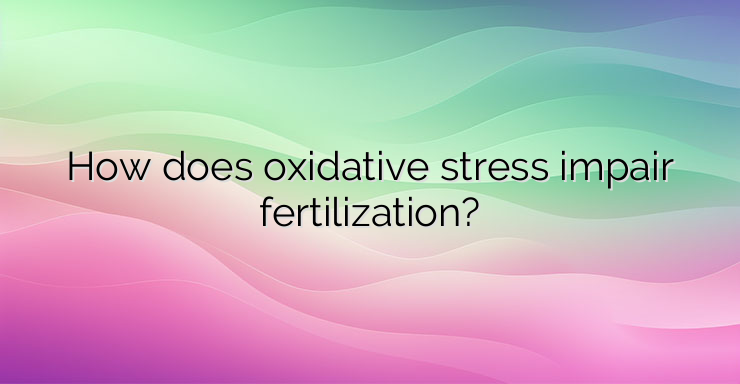Oxidative stress has long been known to be associated with reproductive health disorders in men. It leads to reduced sperm motility and damage to their genetic information. This causes an increased risk of repeated abortions due to fertilization disorders and genetic abnormalities. The generation of free radicals is a natural process and is necessary for reproductive health, but their accumulation leads to disturbances in fertility, the proper course of pregnancy and the genetic health of newborns. The development of male germ cells is associated with the generation of significant amounts of free radicals, which is a leading cause of oxidative changes in spermatozoa. Free radicals change the genetic information in these cells and can lead to both growth disorders and cell death. Furthermore, these reactive particles are involved in the processes of sperm capacitation, acrosome reaction, mitochondrial stability and male gamete motility. Free radicals perform the functions of mediators in the metabolic processes that occur in spermatozoa. Leukocytes, which are part of all cellular elements related to spermatogenesis, also produce free radicals under physiological conditions. This contributes to providing effective protection against infectious agents and inflammatory processes in the seminal fluid. However, an imbalance between free radicals and antioxidants can lead to cellular damage. It has been established that the characteristics and qualities of spermatozoa significantly change under the influence of high amounts of free radicals. This leads to impaired reproductive abilities of the seminal fluid, as damage to sperm DNA is observed. These cells are very sensitive to the action of oxidative stress because they contain high amounts of monounsaturated fatty acids in their membranes and cytoplasm. Peroxidation of sperm cell membrane lipids is a leading mechanism that leads to impairment of sperm fertility. All this leads to infertility in men. High amounts of free radicals alter sperm motility and cause cell death. Damage to the genetic information of sperm leads to an increased risk of miscarriages and impaired fertilization. The higher frequency of genetic abnormalities in the embryo is due to the changes in the quality of the seminal fluid, which are caused under the action of oxidative stress. Chromatin damage in sperm disrupts normal fertilization and early embryo development. References: https://www.ncbi.nlm.nih.gov/pmc/articles/PMC6472207/


Leave a Reply